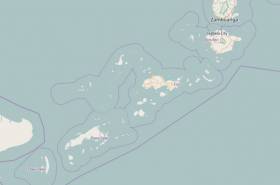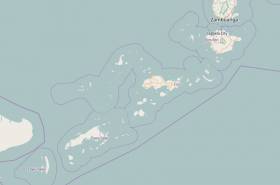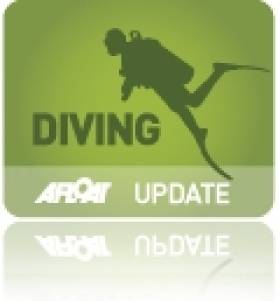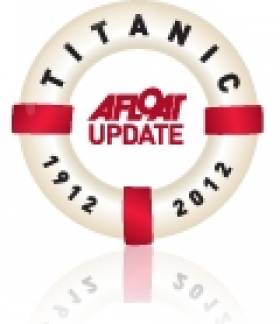Displaying items by tag: Philippines
Clipper Race Gets Special Permission from Philippines to Restart in 2022
The Clipper Round the World Yacht Race has announced it will be resuming its 2019-20 edition in March next year after receiving a special event permit from the Philippines.
After sailing halfway around the world, the sailing event was suspended 18 months ago in Subic Bay due to the coronavirus pandemic. This new permission will enable Clipper Race organisers and race crew to return to the country, with the restart to take place in March 2022.
The 11-strong fleet of Clipper 70 ocean racing yachts had raced over 20,000 nautical miles from London, with stops in Portimão in Portugal, Punta del Este in Uruguay, Cape Town in South Africa and Fremantle and the Whitsundays in Australia), but have remained in Subic Bay Yacht Club since March 2020 after organisers and race crew had to return home.
Before the current edition was postponed, Clipper Race crew had crossed the Atlantic Ocean both north and south and the Indian Ocean, raced towards the Roaring Forties,and sailed around the Australian coast. They have also crossed the equator twice, experienced tropical heat and frigid cold and faced huge seas and flat calm.
The Clipper Race is the only event of its kind which trains people from all walks of life to become ocean racers. Participants sign up to compete in one or multiple legs, or the full eleven month and 40,000nm circumnavigation. Founded by Sir Robin Knox-Johnston, the sailing event recently celebrated 25 years since its first edition in 1996.
The Clipper Race team, including co-founders Sir Robin and William Ward, met the officials from the Philippines Department of Tourism and Tourism Promotions Board at the recently concluded World Travel Market in London to finalise the entry and logistical requirements and health protocols for the event in Subic Bay.
 Clipper Race co-founders William Ward OBE (left) and Sir Robin Knox-Johnston recently met in London with Secretary Bernadette Romulo-Puyat, Philippines Department of Tourism (second left) and Attorney Maria Anthonette C Velasco-Allones, chief operating officer of the Tourism Promotions Board Philippines
Clipper Race co-founders William Ward OBE (left) and Sir Robin Knox-Johnston recently met in London with Secretary Bernadette Romulo-Puyat, Philippines Department of Tourism (second left) and Attorney Maria Anthonette C Velasco-Allones, chief operating officer of the Tourism Promotions Board Philippines
On receiving the special event permit, Sir Robin said: “We couldn’t be happier that the Philippines has recognised the Clipper Race as a special sporting event and we are very grateful for their support in allowing us to return to the country next year.
“We also extend our thanks to the UK Foreign, Commonwealth & Development Office, the British Embassy in Manilla for their support in our application.
“This will have been the longest edition in our 25 year history. We appreciate it has been a long wait for our Race Crew competing in the outstanding stages of this circumnavigation. We are looking forward to getting back to our yachts in Subic Bay and continuing the Clipper 2019-20 Race.”
Preventative COVID-19 controls will be in place to mitigate risk to race crew, staff and the Philippines community and to ensure the safe and successful restart of the race. These will involve a quarantine and testing programme on arrival in the country, while staying in the Subic Bay metropolitan area and during the remainder of the circumnavigation.
Secretary Bernadette Romulo-Puyat of the Philippines Department of Tourism said: “The upcoming Clipper Race in Subic Bay is a big market confidence booster for the Philippines as we prepare for our country’s reopening to international leisure travellers.
“The event will also benefit a number of sectors within our tourism industry, including our hotels, with the requirement of approximately 3,000 room nights, along with transport and yacht provisions for the crew.”
Unfortunately, due to government restrictions, Chinese host ports Sanya and Zhuhai are unable to secure the required permission to allow their cities to host the Clipper Race as planned. The Qingdao Organising Committee is still exploring options for its stopover in the sailing city of Qingdao.
Once the fleet departs the Philippines next year, the sailors’ next big challenge will be tackling the mighty North Pacific Ocean, which is known as ‘the big one’. The teams will be racing towards Seattle and expected to arrive in the US city in mid April 2022.
Abducted German Sailor Found Dead In Philippines
#Piracy - The body of a German sailor held hostage by militants in the Philippines late last year has been found, as RTÉ News reports.
Seventy-year-old Jurgen Kantner was murdered last week by terror group Abu Sayyaf after their ransom demands of more than half a million euros were not met, according to the Philippine government.
Kantner had been captured in November by the IS-aligned militant group, who killed his companion Sabine Merz when their yacht Rockall was boarded off the southern Philippines in an kidnapping blackspot, as previously reported on Afloat.ie.
The incident came eight years after the couple had been held hostage for 52 days by Somali pirates at the Horn of Africa.
RTÉ News has more on the story HERE.
German Sailor Killed, Another Abducted By Militants Off Philippines
#Piracy - A German sailor has been abducted and his companion killed by militants off the southern Philippines — eight years after the couple were held hostage by Somali pirates.
According to Mail Online, the terror group Abu Sayyaf — which specialises in kidnappings for high ransoms — has claimed responsibility for abducting 70-year-old Jurgen Kantner and killing Sabine Merz, whose body was reportedly found by the Filiino military on the couple’s yacht Rockall.
The region where the yacht was found is generally avoided by foreign yachts due to the high risk of kidnapping. Earlier this year two Canadian men were beheaded by Abu Sayyaf after the group’s ransom demands were not met.
In 2009, Kantner expressed his own concerns about a second kidnapping following payment of a ransom to Somali pirates who had held him and Merz for 52 days the previous year.
"I really hope the pirates don't catch me because this time no one will pay and everybody will tell the pirates: 'Keep him'," he told news agency AFP.
Mail Online has much more on the story HERE.
Howth Coast Guard To Host Philippines Clothing Donation Drive
#Philippines - Howth Coast Guard will be hosting a donation drive for clothing and other items needed by people in the Ajuy area of the Philippines currently recovering from the recent Typhoon Haiyan disaster.
The coastguard station on the West Pier in Howth will be open this Saturday 23 November from 12pm to 2pm to take in light clothes such as shorts and T-shirts that are suitable for the warm climate in the Philippines.
Light bed linen and towels will also be accepted, and donors are asked to roll their items as tightly as they can into a bag so that the courier boxes can be filled as much as possible.
Irish Diver At Home In The Philippines
#Diving - The Daily Inquirer in the Philippines turns the spotlight on Irish diver David Joyce, who together with British business partner Matt Reed runs the Evolution diving school in northern Cebu which specialises in technical dives such as wreck explorations, and more recently the recovery of a downed aircraft.
A former TV producer and director, Joyce tells how he met Reed during a holiday in the Philippines in 2008 and suggested the idea of setting up shop in the country together.
Five years on and the pair now employ 24 people across 10 properties, training locals and tourists alike in the more technical aspects of diving, going deeper with more specialised equipment.
“Everything has to be calculated," says Joyce. "When you return to the surface, it has to be slow taking 90 minutes to two hours or 3 meters per minute).
You have to be prepared—four tanks containing different gases, regulators and rebreather units have to be on standby."
Aside from their particular interest in wreck dives - including the discovery of what might be the wreck of the MV Pioneer Cebu, which sank in 1966 with 262 passengers aboard - the duo are dedicated to preserving the natural resources of their tropical island paradise.
That involves working with the local coastguard to prevent destruction of delicate coral reefs and the decline of the catch for local fishermen.
The Daily Inquirer has much more on the story HERE.
The 13 Deadliest Shipwrecks in History
#TITANIC - Irreverent tech website Gizmodo has marked the 100th annversary of the sinking of the Titanic with a list of the 13 deadliest shipwrecks in history.
The list runs the gamut from well over a century ago, in the early days of passenger shipping - see the SS Sultana, a tragedy overshadowed by the assassination of Abraham Lincoln and the end of the American Civl War - to more recent events.
Included are such as sad tales as that of the Empress of Ireland, the worst disaster in Canadian maritime history in which more than 1,000 died, and much closer to home the Lusitania, which went down off Kinsale in May 1915 after a torpedo attack.
But the worst was arguably suffered by the passengers of the steamship SS Kiangya - which blew up 50 miles north of Shanghai in December 1948, taking as many as 3,920 lives - and the horror that befell the MV Doña Paz in the Philippines in December 1987, where estimates put the death toll at an unbelievable 4,000.
Gizmodo has more on the story HERE.


































































